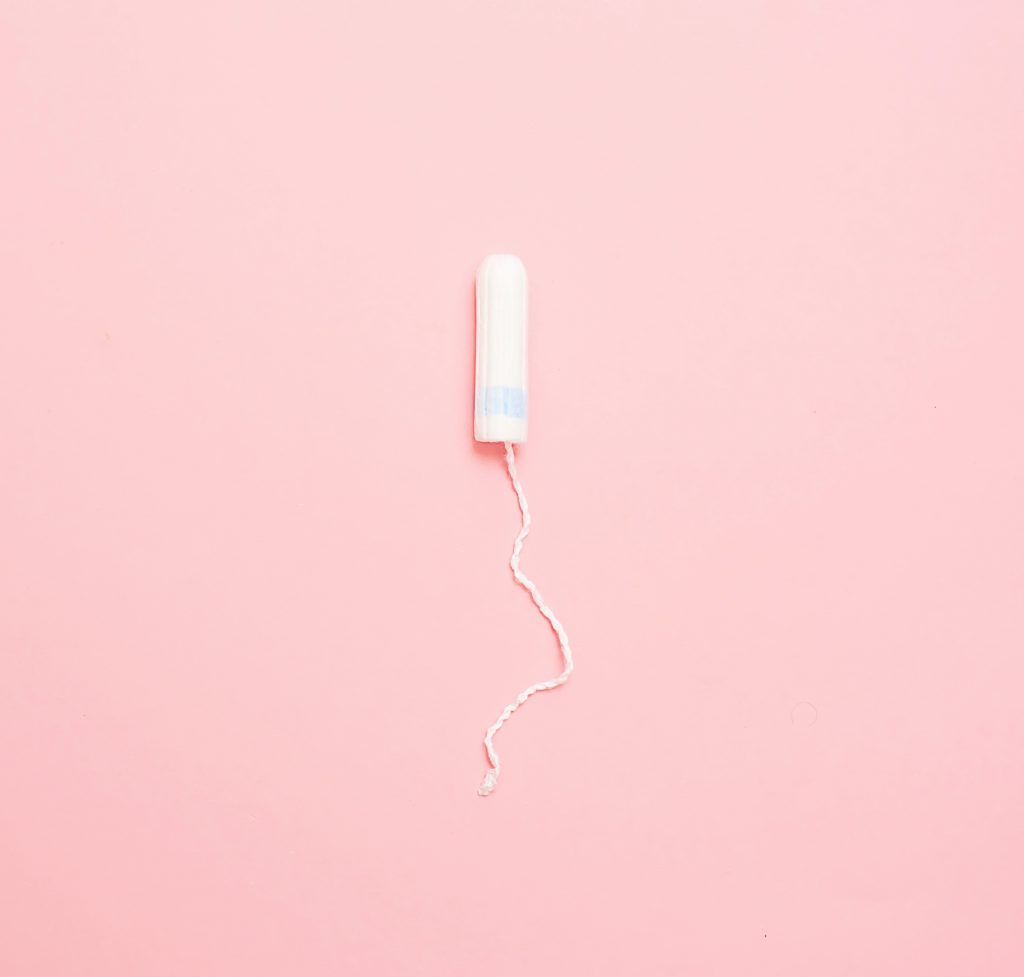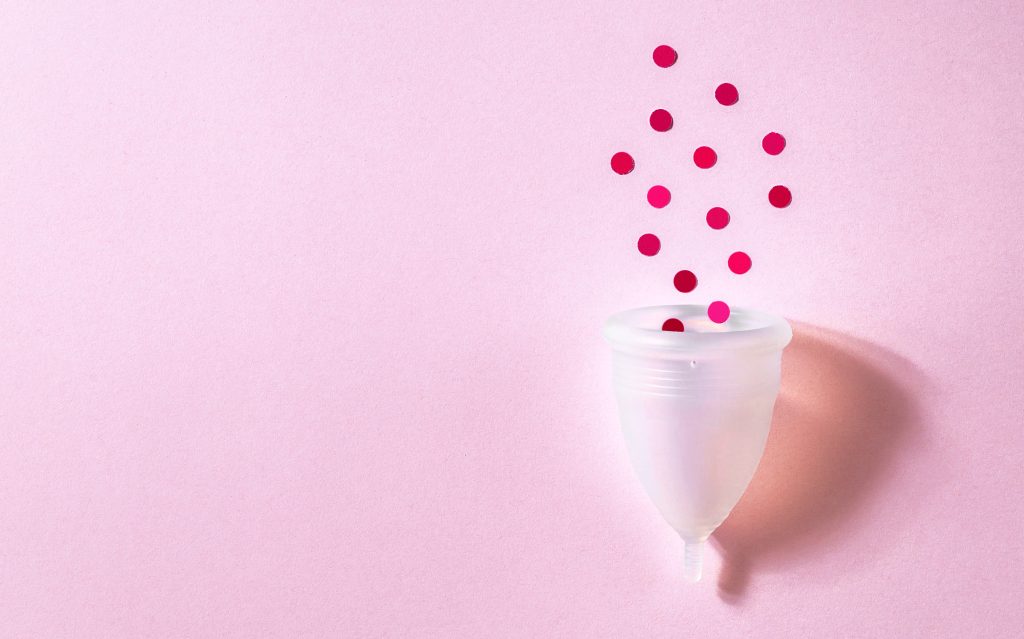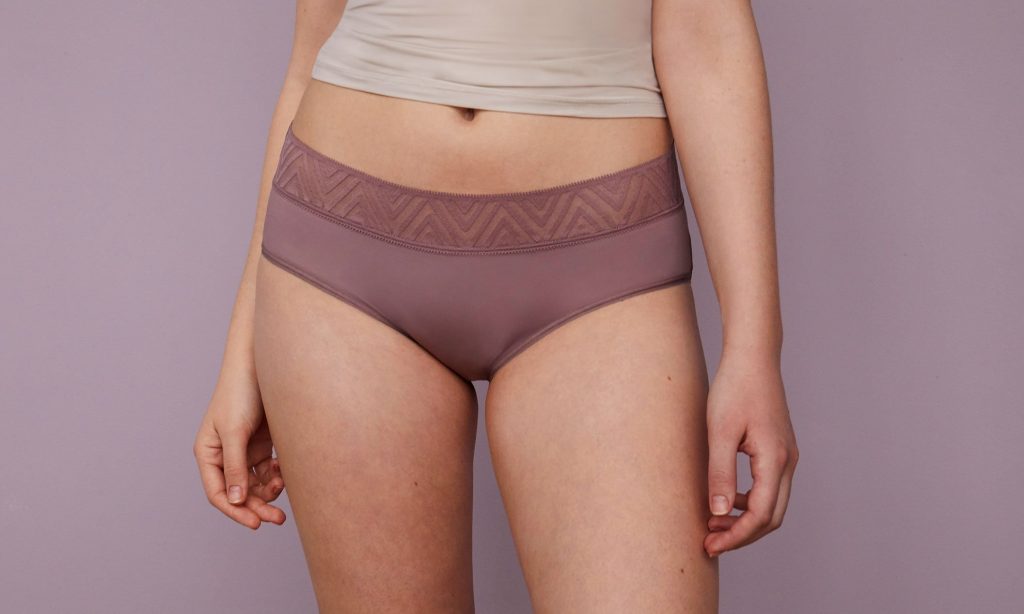It’s Time to Ditch Those Toxic Tampons, Ladies!
April 18, 2019 By Sarah WhiteNo Comments

Your vagina deserves better than toxic tampons + some healthier alternatives.
Why it’s officially time to ditch that toxic tampon:
Your vagina is lined with a mucous membrane layer that contains a ton of blood vessels and is highly permeable. This means that anything that touches the inside of your vagina will have a high rate of absorption into your blood stream. While the vaginal tissue can be an amazing place to absorb bioidentical hormones and certain medications, it will also absorb toxins and chemicals from anything else that you place up there. Consequently, all of those nasty chemicals found in your feminine hygiene products are unfortunately, going to be absorbed into your blood stream. The average woman uses around 16,000 tampons in her lifetime, which means 16,000 possible exposures to these endocrine disrupting chemicals found in your typical tampon:
- Fragrance: Let’s start with the obvious here .. there’s absolutely zero reason for tampons to smell like anything other than plain cotton. The chemicals used to add scent to tampons can damage the good bacteria living in your vagina, which can lead to dysbiosis and bacterial vaginosis. Synthetic fragrances also typically contain phthalates, which are used to make scents last longer. Phthalates are well documented hormone disruptors that have been linked to increased rates of infertility & female gynaecological problems. Vaginas come with odors, it’s normal & natural and there’s no need to change this with a perfumed tampon.
- Plastics: When it comes to tampons, most of the plastic exposure comes from plastic applicators used for insertion. Plastics, specifically BPAs, are yet another endocrine disruptor (meaning they alter hormone levels) and they should stay far far away from you vagina. When it comes to female fertility, BPA and other endocrine disrupting plastics can accumulate in your follicular fluid and are associated with abnormalities in ovarian development. If you’re still using tampons please switch to cardboard applicators, or even no applicator; the more ecological alternative.
- Pesticides: Did you know that cotton is one of the world’s most heavily sprayed crops? There are up to 8 different pesticides lurking in conventional tampons. If using tampons they must be 100% organic otherwise you’re putting pesticides directly into your vagina every cycle. Many of these pesticides act as xenoestrogens, meaning they impact your endocrine system and hormone production. Xenoestrogens are synthetic compounds that mimic estrogen in the body to disrupt normal hormone rhythms and theycan lead to lower thyroid hormone levels.
- Dioxin: A byproduct created during the bleaching processes used to make tampons look pretty. Dioxin is highly toxic, can cause hormonal disruption, and is even linked to increased risk of cancer. There are also studies linking dioxin to increased rates of endometriosis. In one study researchers exposed monkeys to dioxin and found significant increases in rates and severity of endometriosis.

So, what’s a girl to do?
Here are some (doctor-approved) healthier options for your monthly menses:
- A Menstrual Cup: As bizarre as it may seem at first, the menstrual cup is an excellent alternative to traditional tampons. Made of medical grade silicone it’s an economical, ecological and safe alternative for your monthly flow. Insertion and removal of the cup may take a little bit of practice at first but there are tons of great videos on youtube to help you get comfortable. Not only are menstrual cups safer for your vagina, they’re also a wonderful tool to learn more about your own hormonal health. I like to think of my patient’s flow’s as their ‘monthly health report’. If you pay close attention you will notice changes to flow based on your stress, diet, and alcohol consumption; changes that are not obvious when using tampons or pads. My favourite cup is the diva cup and I suggest buying 2 in your size so you can swap out when needed. One cup will hold an average of 2 – 6 hours worth of flow depending on how heavy your cycles are.
- Organic Tampons: If you’re a die-hard tampon user (and have no desire to switch methods) then I suggest just making the easy switch to organic tampons with cardboard applicators. There are plenty of companies making bleach-free, organic options, they’re just typically not available in a typical grocery or pharmacy. Visit your local health food store or shop online and you’ll find plenty of options. While my personal preference is a diva cup + thinx (see below), these organic tampons are great while travelling. I realize that organic tampons are more expensive than traditional tampons, but your vagina is worth it, girl!
- Think Period Underwear: I am obsessed with these! Thinx are a washable, stylish, reusable period underwear that absorbs your flow. They are a more sustainable solution than single-use disposable products and can replace pads / tampons or be worn with cups for extra protection. Amazingly, 1 pair holds around 2 tampons worth of flow so they can definitely be used as a stand alone for your menses. While organic tampons and menstrual cups are wonderful for heavier flow days, traditional Chinese medicine encourages women to flow freely when possible to avoid disrupting the flow of qi. I personally use organic tampons or a diva cup on days 1 – 2 then switch to thinx for the last couple days of flow (yes I have a vagina, yes I menstruate, and no I’m not ashamed to talk about it on the internet).

The average woman spends around 2,000 days of their life menstruating. That’s 2,000 days to expose your vagina to toxic chemicals, or 2,000 days to give your lady parts some love. Your vagina deserves better than toxic tampons, and I strongly encourage your to check out some of these healthier alternatives and to invest wisely when it comes to your menstrual health.
If you live in Oakville and want to developed your own personalized hormone balancing protocol you’re welcome to book in for an initial consultation or contact me via my website for additional information.
If you’d like to work together and you’re not a resident of Ontario*, or you’d prefer an online consultation you can book online with Dr. Sarah here.
*Note: online services provided by Dr. Sarah to those of you living outside of Ontario are delivered as a Certified Functional Medicine practitioner consult and not as an Naturopathic doctor appointment & as such they will not be eligible for reimbursement through private insurance.
References:
COMMENTS
Leave a Reply
This site uses Akismet to reduce spam. Learn how your comment data is processed.
Mauren Meneses says
MAY 13, 2021 AT 8:15 AM
Hormonal issues and nutritional help
Reply